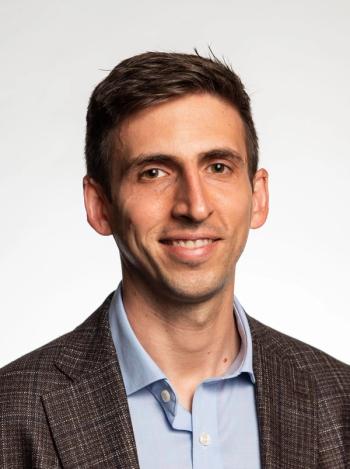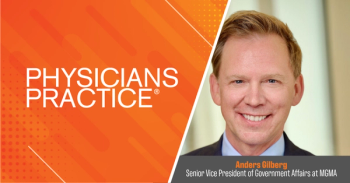
Primary care hit hard by pandemic
Health care is busy and getting busier, but there are possible solutions that could help physicians and other clinicians, according to a new report.
Internal medicine and family practitioners are the leading categories of physicians hanging up their white coats and stethoscopes, according to a new report by Definitive Healthcare. The analytical company based in Framingham, Massachusetts, has published a new report, “
“Workers in these specialties were frequently on the frontlines during the pandemic, risking exposure to the coronavirus and facing many of the pressures and stressors described” in the report.
- In 2021 and 2022, 8,718 internal medicine physicians left the workforce, along with 7,842 family practice doctors. Rounding out the top 10 list of losses:
- Clinical psychology, 5,985
- Psychiatry, 5,059
- Pediatric medicine, 4,142
- Optometry, 3,506
- Emergency medicine, 3,207
- Anesthesiology, 2,872
- Obstetrics/gynecology, 2,536
- General surgery, 2,134
What hurt the most
The report noted the effects of shelter-in-place orders and fear of catching COVID-19 by visiting physicians’ offices, hospitals, and health facilities.
“It’s no secret that the pandemic transformed the way patients engage with their doctors and receive care,” the report said. “Unable to visit their doctors face-to-face, patients instead turned to outpatient clinics, ambulatory surgery centers, and home health care agencies, and used telemedicine to get the care they needed.”
Optometry, OB/GYN and anesthesiology examinations rely on face-to-face contact, which was not always possible at the height of the pandemic, according to Definitive Healthcare. Health care practices lost billions in revenue, with optometry and anesthesiology possibly facing greater difficulty adapting due to complex technology and physical contact needed to treat patients.
Looking ahead
Help is not necessarily on the way for physicians who are overworked, struggling to keep the doors open, or both. Health care needs are likely to increase in the foreseeable future.
The nation’s population is projected to reach 361 million in 2032, with an estimated 73 million people aged 65 years and older. Physicians are aging too, with adult medicine and general practice doctors having an average age of 59 years. Cardiologists have the youngest current average age – 55 years. Definitive Healthcare cited data from the Association of American Medical Colleges and its own PhysicianView research.
Whatever the age, physicians are
The staff shortages create risks for patients. There is a growing knowledge gap, with fewer experienced physicians to pass along their knowledge to newer ones, and “quality health care in rural communities remains one of the industry’s most challenging problems,” the report said.
Possible solutions
Definitive Healthcare suggested three potential strategies to bolster the workforce:
Telemedicine to reduce facility operating costs.
- Confronting burnout, particularly with best practices to prevent suicide, and stigma and shaming for clinicians who seek mental health assistance.
- Expanding the nation’s Graduate Medical Education, especially to help rural areas.
Overall workforce
Regarding the COVID-19 pandemic, Definitive Healthcare estimated 71,309 physicians left the workforce, the single largest group of health care workers and more than double the 34,834 nurses who quit working due to the various effects of COVID-19. The tally included 15,332 physical therapists who left the workforce, 13,714 physician assistants, and 10,024 licensed clinical social workers, for a total of 145,213 providers leaving the workforce from the first quarter of 2021 to the first quarter of 2023.
“There are multiple different reasons behind their departure,” the report said. “Many of these healthcare providers work in direct contact with older adults and people living with disabilities, two patient populations who are more vulnerable to COVID-19. As a result, these providers are more exposed to the negative effects of treating COVID-19 patients: a fear of infection, untenable hours, depression and stress, and the emotional toll of the loss of patients, as well as the loss of their colleagues fighting the pandemic.”
Hospitals hurting
Not every state reports on numbers of hospitals experiencing staffing shortages, but the ones that do have double-digit deficits of workers.
South Carolina led with 26.6% of hospitals reporting a critical staffing shortage, meaning they have exhausted all options to fill open slots. Maryland hit 24%, Michigan was at 17.3%, Delaware was at 10% and Virginia trailed at 9.6%.
COVID-19 illnesses could be to blame for South Carolina and Michigan, but Delaware had “far fewer” COVID-19 cases, suggesting the pandemic was not the only factor causing worker shortages.
The study was written by Ethan Popowitz with contributions by Todd Bellemare, senior vice president of strategic solutions, and Rachel Kolbin-Gupp, senior marketing data analyst of Definitive Healthcare. The report used data gathered and analyzed in July and August 2022 and updated in July 2023.
Newsletter
Optimize your practice with the Physicians Practice newsletter, offering management pearls, leadership tips, and business strategies tailored for practice administrators and physicians of any specialty.






